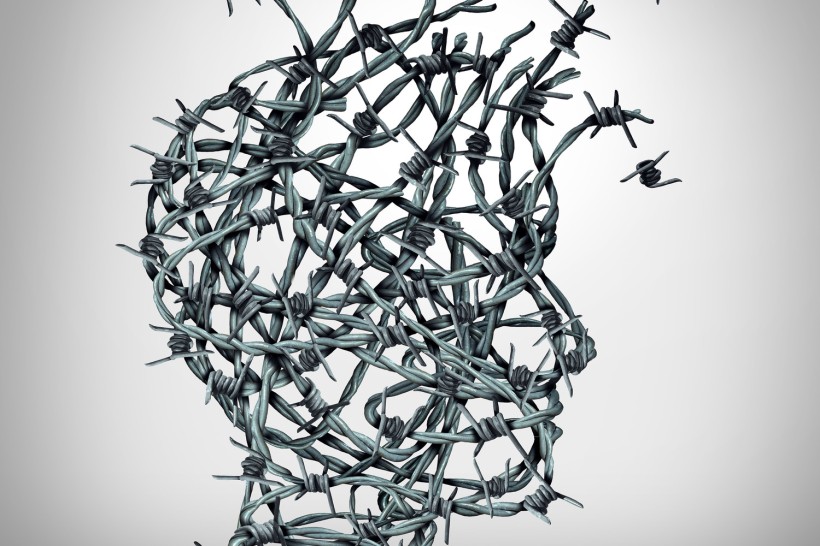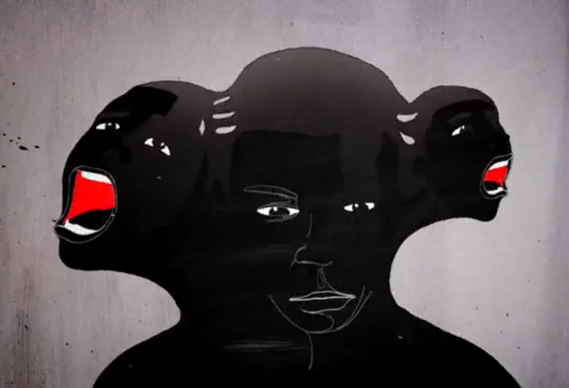
Anxiety, the feeling of worry, fear, uneasiness and sometimes panic. In some situations anxiety can be good for things such as exams, job interviews or moving but when you are constantly on edge, it is time for you to pay attention. Imagine that gut feeling of fear on a daily basis, imagine having to take an exam everyday of the week or stressing all night wondering if you are going to do well. You cannot overcome these intense emotions until the exam ends but, for those who battle anxiety, it never ends.
The second most common mental health illness in the UK, is what i would like to expand on today. I can provide clarity about anxiety and you as the reader can gain a better understanding.
Anxiety comes in many forms from mild to severe but each is unique to the individual and it has a significant affect on how a person copes with their day to day experiences. Anxiety is a common experience many of us will go through at some point in our lives. Whether it is due to an exam, public speaking, first date or job interview, we have all had our share with anxiety. Unfortunately, for those who suffer from anxiety, that overwhelming feeling doesn’t go away.
Anxiety symptoms vary from person to person, but some of the common ones are listed below. Let’s have a look:
Trouble sleeping
Nausea
Panic
Panic attacks
Dizziness
Lack of concentration
Chest pains
Palpitations
Shortness of breath
Compulsive behaviour
Shyness
Hot flash
Worry
(The above list is not an account for every single symptom someone with anxiety may have)
Anxiety can be caused through a chemical imbalance in the brain that controls our mood. It can be hereditary or it can be caused through traumatic experiences. As stated previously, anxiety comes in many forms and its severity is dependent on the individual but next lets look at some diagnosis below. Please be mindful that this is in the most basic form and it may not be entirely true for all cases.
General Anxiety Disorder– a nervous disorder marked by excessive uneasiness and apprehensions, typically with compulsive behaviour or panic attacks.
Panic Disoder- is not about ”panicking” it is more about an experience of a severe level of doom (for better words) due to a mental and physical symptoms that are extremely intense it can be hospitalized and a danger to ones health. (Example, serious shaking in hands or body)
Social Phobia– is an irrational fear of social situations. The smallest form of social phobia is shyness around large crowds or around people you may not know. Nevertheless, social phobia can be a massive disruption to ones life when they are in constant fear of being judged, observed, or embarrassed at the thought of doing something stupid. People with social phobias often avoid going to places where they must socialise and it becomes unhealthy.
Post Traumatic Stress Disorder (PTSD)– is an anxiety disorder that comes after a traumatic life experience. You usually hear that people from the army often suffer from PTSD.
Phobias– This is an intense feeling of fear to objects, animals, scenarios etc. Phobias such as fear of heights, can make an individual avoid the situations at all cost. The thought process that comes with phobias is always in the worst case scenario making it harder to face their fears.
Obsessive Compulsive Disorder– I have watched many documentaries on this disorder and it can be a serious destruction to ones life. The obsession in OCD is with a certain thought which is negative or fearful. Regardless of how hard you try to get rid of it it, it doesn’t seem to help. Have you ever watched Obsessive Compulsive Cleaners on Channel 4? If not take a look. The compulsive in OCD is the ritualistic behaviour that needs to be performed in a specific way all the time. If the person does not complete these performances or activities, their is almost a feeling of danger, fear or worry of the worst thing will happen.
There are other forms of phobia that you can find on calmclinic.com where some of the information above was given.
Treating anxiety?
The most popular therapeutic form happening today is Cognitive Behavioural Therapy or for short CBT. CBT is a talking therapy or also known as a short-term talking treatment focusing on thoughts, behaviour and our feelings. It is understood that these three parts in your life intertwine with one another.

Self-help has been massively pushed within the last couple of years as many healthcare professionals do not want individuals to solely rely on medication. Here are a few
Get Active.
This generation, especially, is a microwavable world whereby we want and need fast results. It is necessary to slow down and take a break. Take a break and get active at least three times a week. Turn off the TV, turn off the phone and go out for a walk. Go out for a jog with a friend. If you are struggling with stepping outside, then find some home bound physical activities. It is important to maintain physical activity as it helps stimulate the brain positively. Be on the look out on our Instagram Page as we will be sharing some fun activities (SheIs_UK)
Positive affirmations.
I am not sure how many times I have heard this said by many successful people, but I can’t help but to believe that it is true. Paste a couple of affirmations you agree with, within your home, on your mirrors, on your fridge, your phone wallpaper, your car or any area you are frequently in. Say them to yourself on a daily basis. Find one that relates to your anxiety disorder and see how it goes!
Enough Sleep.
Sleep is precious, in fact it is very precious. The person that tells you that you don’t need sleep is the person who doesn’t want you to succeed. The human body needs about 7 hours of sleep to fully function the next day. Set an alarm. Turn off the phone,TV or whatever consumes your evening. Make sure your prepped and ready for the next day. Read a book to relax and calm your nervous system and off to bed you go. If reading doesn’t work, try some calming music, like sounds of the beach.
Connect with others.
Everyone needs a support network. It is harder when you feel alone, you are unable to motivate yourself through the storm. That is why, many healthcare professional encourage individuals to join groups and find peers within their area for support. It is important that you have a trusted friend that can help you through the high and lows. Have you joined a group lately? If so has it helped?
Strategise.
Learning to take control and finding the right techniques will help a lot in this area. When you start to feel fear or worry arise, put the strategies in place that will support you to calm down. This is all apart of learning to take control over the mind similar to CBT. Reducing your intake on caffeine, alcohol and nicotine can be a great start!
Medication.
If the anxiety it taking control over your life and it is becoming a severe problem, then you can seek advise from your local GP about medication. I would advise that you try all the above and if they all fail, then please get the support you feel necessary. Below, I have added some links where you can get further support if you are suffering or may feel you have anxiety.
I hope this post helps and please share.
(Be Mindful: Strong Language used)
Need support?
Your trusted GP
And as always, you can speak to US! She Is UK is a non-judgmental platform dedicated to women of all ages who need support recovering, healing or getting through the broken wounds. This is a Christian based ministry, however, everyone is accepted and valued. If you need a listening ear or you may have a question and need some navigation please feel free to email sheis.ukministry@gmail.com
As always with love,
Pricilla x


 ess that gets a lot of stick.
ess that gets a lot of stick.